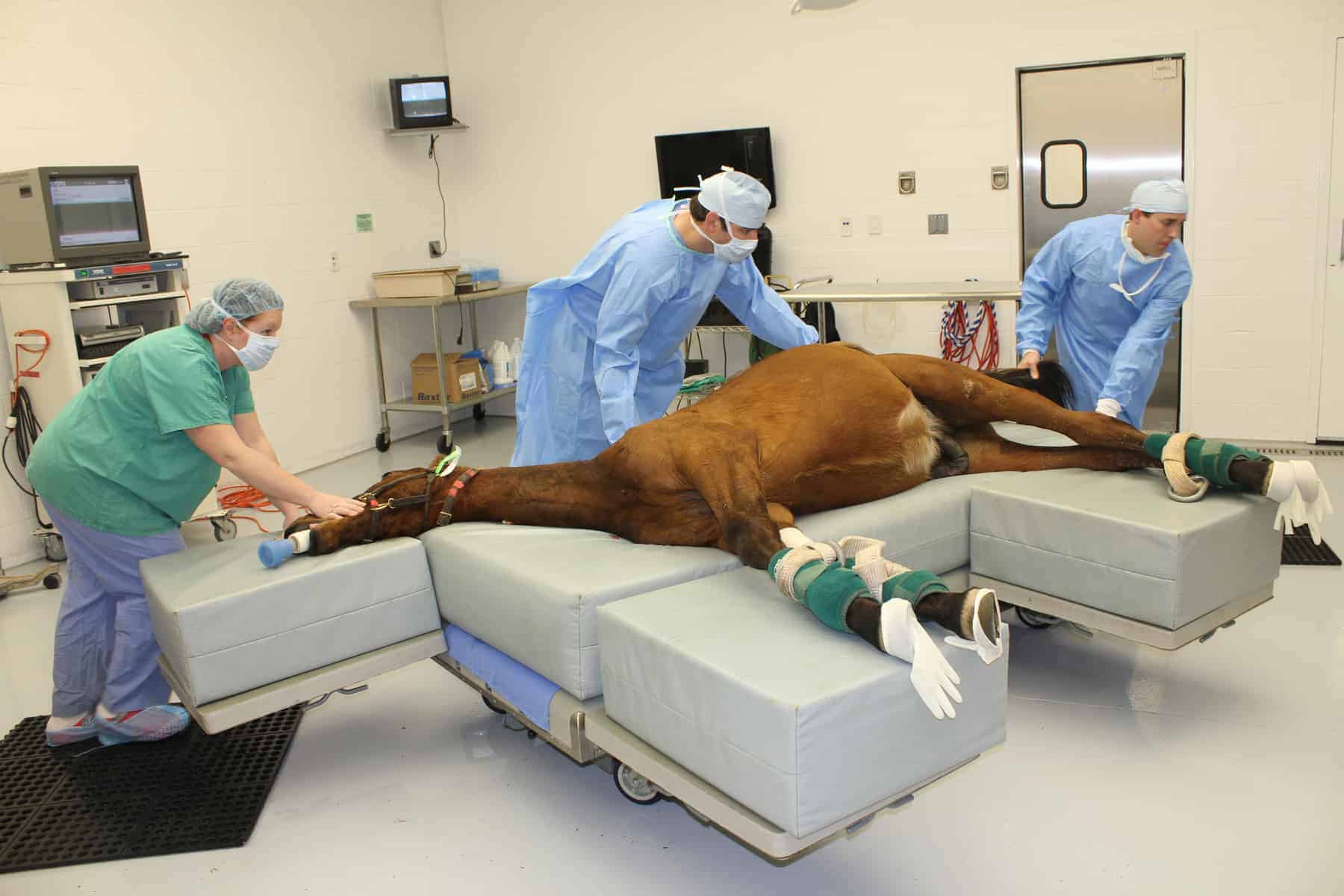Equine Anesthesia Deaths ‘Remain High,’ Risk Factors Identified

“It’s important for owners to be aware that anesthesia-related risks in horses are non-negligible, even though every effort is made to reduce risks within the limits of our knowledge about those risks,” said Karine Portier, PhD, DVM, CertVA, Dipl. ECVAA, DScV, HDR, MRCVS, professor in the anesthesiology department of the University of Lyon.
Some risk factors are clear, Portier said. For example, she found that in her teaching hospital, horses undergoing colic surgery had a 3% anesthesia-related mortality rate, more than three times the 0.9% rate of anesthesia-related deaths in noncolic cases.
Weight is another critical factor, said Portier. Heavier horses are more likely to die from general anesthesia, probably in part because increased weight affects oxygenation in the blood and lungs, making horses more likely to suffer from blood oxygen deprivation. Age is a factor, as well, with older horses incurring greater risk of mortality from anesthesia. Surgeries requiring the presence of a more senior veterinarian (hence, more complex surgeries like fracture repair) also increased the risk, she said. In general, orthopedic surgery carried a 10-fold greater risk of anesthesia-related mortality—probably due to the length of surgery, she explained. Additionally, emergency surgeries (mainly colic and orthopedic trauma) carried higher risks
Create a free account with TheHorse.com to view this content.
TheHorse.com is home to thousands of free articles about horse health care. In order to access some of our exclusive free content, you must be signed into TheHorse.com.
Start your free account today!
Already have an account?
and continue reading.

Written by:
Christa Lesté-Lasserre, MA
Related Articles
Stay on top of the most recent Horse Health news with















